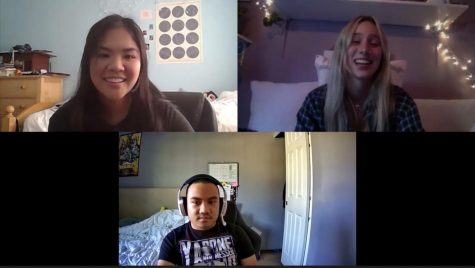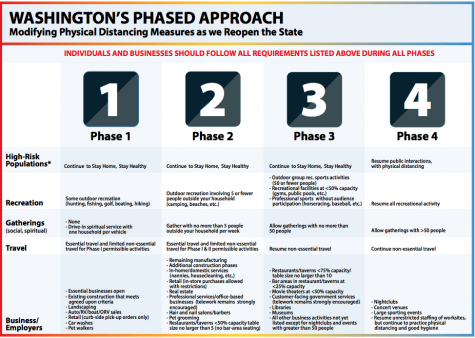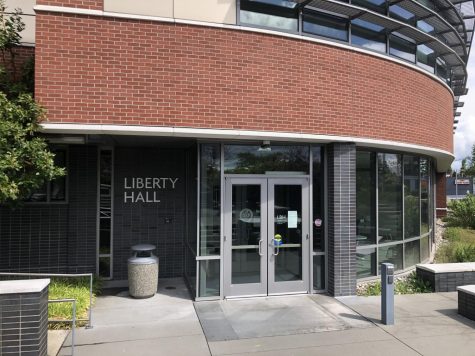Should We Get Rid of Algebra?
Countless students have cursed at their math book as they try to figure out how x’s and y’s can ever help them in their daily lives. And the answer is for a lot of people, it won’t.
Recently The Seattle Times published an article raising the question, “Is Algebra an Unnecessary Stumbling Block in US schools?” The article discussed the relatively new book by political scientist, Andrew Hacker, “The Math Myth and Other STEM Delusions.”
Currently, in order to get a general studies degree at EvCC, students must pass at least one college math class (80 and above). Math 80 at EvCC is an introduction to Algebra. According to EvCC, the class covers all basic algebra skills from fractions to order of operations.
Hacker favors math curriculum’s that focuses more on statistics and basic number sense rather than the current algebra requirements that according to Hacker, only 5% of jobs make use of algebra and other advanced math courses.
However, there are alternatives to basic algebra here, Math in Society (Math 107) is an alternative. According to the college, Math 107 is a college-level coverage of practical applications of mathematics methods to areas of management, social sciences, biology and other fields.
Chuck Jones, Everett Community College Professor, said “I understand why people are very concerned – one out of three American college students don’t get their degree because of algebra requirements.”
But in the end he disagrees with Hacker, “in the twenty-first century jobs are going to be coming and going… the only people that will be ready for these changes will be the people that have studied math and science in depth.”
What do Students Think?

Kevin Dang
Some students agree with Jones, and think that it shouldn’t be removed from general degrees. Kevin Dang says “I think for a general degree; you should be well rounded… So I think it is fine to keep.”
Dan Estill has a similar view, “college is about learning, but also about facing challenges, and if we take away requirements it makes it easier.”
Some students think algebra is important, but not important enough to keep people from getting degrees. Miriam Ruvalcaba has noticed that “it (Algebra) helps me in school and outside of school… it’s important to learn.”

Dorian Valadez and
Miriam Ruvalcaba
Although, Ruvalcaba thinks that if it’s not needed for a certain degree and students can’t grasp the information, then “I don’t think it should be required… use that money for a different course, something that is essential (to their direction of study).”
Student Dorian Valadez is currently taking basic math classes in order to get to a math class that meets her degree requirements. Valadez said, “I think it’s still basic and it’s kind of a refresher for me, so I think students should still take it.”

Mariah Stork
Other students, like Mariah Stork, think it should be gone, “I hate math… if you’re actually going into engineering or medical then it’s a good requirement.”
Stork thinks we should look at what might be causing the students not to learn then completely getting rid of the requirement. Stork said, “because we have bigger classes, students don’t get the one-on-one they might need.”
What is your opinion? Do you like the current system? Should we throw out math requirements?

What are your future plans in journalism?
I want to continue writing and documenting the world via pictures.
What do you like to write about?
I...






Matthew Fuentes • Apr 25, 2016 at 11:21 pm
I think it’s more about how its taught. Math shouldn’t be this evil, horrible, terrible topic. It is a beautiful creative language. Besides, I haven’t “used” directly lots of my education. Education is not just learning skills, it’s about learning how to learn, opening up your mind, learning different perspectives, getting exposed to things you never dreamed would be interesting. So yes, this includes math, besides how many jobs require knowledge such topics as Greek tragedies (which shouldn’t be removed either 🙂 ). One more note, how does Hacker plan on teaching statistics without some knowledge of algebra?
The math basic math curriculum is about exposure not becoming an expert in math.